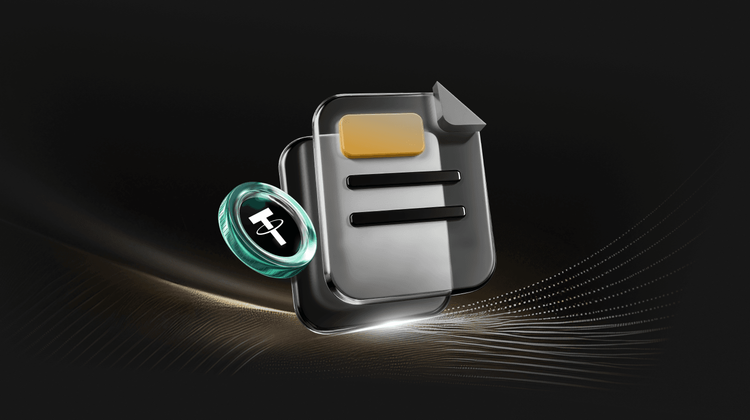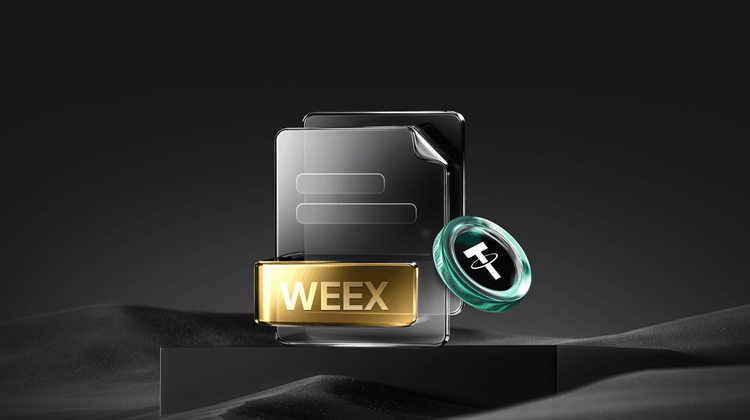Bitchat Surges to No. 2 in Jamaica Amid Hurricane Melissa’s Devastation: How Decentralized Messaging Apps Are Saving Lives
Key Takeaways
- Bitchat, Jack Dorsey’s decentralized messaging app, has climbed to the second spot on app charts in Jamaica as Hurricane Melissa disrupts traditional communication with 185 mph winds.
- The app’s Bluetooth mesh networks enable encrypted, internet-free messaging, providing a vital lifeline for Jamaica’s 2.8 million residents amid faltering internet services.
- Adoption of Bitchat spikes during crises, from natural disasters like hurricanes to government-imposed blackouts, highlighting the resilience of decentralized technologies over centralized platforms.
- Similar surges in Bitchat downloads have occurred in countries like Nepal, Indonesia, and Madagascar during protests and service disruptions, underscoring its role in global communication resilience.
- Broader discussions tie into privacy concerns, such as the EU’s delayed “Chat Control” law, while crypto enthusiasts link it to Bitcoin’s potential surge to $150K by the end of 2025, as predicted by figures like Michael Saylor.
Imagine you’re huddled in a storm-sheltered home in Jamaica, with howling winds tearing at the roof and power lines snapping like twigs. Your phone’s signal is gone, the internet is a distant memory, and you desperately need to check on family across the island. That’s the harsh reality for millions right now as Hurricane Melissa unleashes its fury. But in this chaos, a simple app is emerging as a hero: Bitchat. This decentralized messaging tool, backed by tech visionary Jack Dorsey, isn’t just another chat app—it’s a beacon of connection when everything else fails. As downloads skyrocket, hitting the No. 2 spot on both Apple App Store and Google Play in Jamaica, it’s clear that decentralized solutions are rewriting the rules of communication during disasters.
Let’s dive into how this unfolded. Hurricane Melissa, with its brutal 185 mph winds, has battered the Caribbean, leaving a trail of destruction. Reports indicate over 30 lives lost, including at least 23 in Haiti, and countless homes and businesses reduced to rubble. In Jamaica alone, with a population of about 2.8 million, regular communication channels have crumbled under the storm’s assault. Phone networks are down, internet access is spotty at best, and people are turning to whatever tools can bridge the gap. Enter Bitchat, which cleverly uses Bluetooth mesh networks to create peer-to-peer connections without relying on the internet. It’s like a digital whisper network, passing messages from device to device in a chain, all encrypted for privacy. No central server means no single point of failure—perfect for a hurricane that’s knocking out infrastructure left and right.
What makes this surge particularly telling is the app’s ranking. Right now, Bitchat is only behind Zoom Earth, a weather forecasting platform. Think about that: in the midst of a deadly storm, Jamaicans’ top priorities are tracking the weather and staying in touch. It’s a stark reminder of our basic human needs—information and connection—when nature turns against us. This isn’t just a tech story; it’s a human one, where innovation steps in to fill the voids left by catastrophe.
The Rise of Decentralized Messaging in Crisis Zones
Bitchat’s popularity isn’t a fluke. Historically, apps like this have gained traction when users flee centralized platforms that censor content or impose restrictions. But lately, it’s become a go-to for regions hit by disruptions, whether man-made or natural. Picture it like a sturdy off-road vehicle compared to a sleek city car: the centralized apps work fine on smooth roads, but when the path gets rough—say, a government blackout or a hurricane—they stall out. Decentralized options like Bitchat keep chugging along, powered by the users themselves.
Take recent examples. In September, Nepal saw a spike in Bitchat downloads amid government corruption scandals and a sweeping social media ban that shut down giants like Facebook, Instagram, WhatsApp, and YouTube. Protests erupted, and people needed a way to organize without Big Tech’s oversight. A week earlier, Indonesia experienced the same during its own wave of demonstrations. Then, in Madagascar later that month, ongoing water and power cuts fueled unrest, and again, Bitchat stepped up. These aren’t isolated incidents; they’re patterns showing how decentralized tech empowers people in tough spots.
Now, fast-forward to Jamaica today. As Hurricane Melissa rages on, the app’s mesh network is proving invaluable. Users can send messages, share updates on safe zones, or even coordinate aid without needing wifi or cell service. It’s like building a community radio out of smartphones—reliable, private, and resilient. And the numbers back it up: downloads are soaring, reflecting a real-time shift toward tools that don’t crumble under pressure.
Privacy and Global Debates Fueling Adoption
But why is Bitchat resonating so deeply? At its core, it’s about control—or rather, taking it back from centralized entities. Traditional messaging apps often come with strings attached: data harvesting, content moderation, or vulnerability to shutdowns. Bitchat flips the script with end-to-end encryption and no central authority, making it a fortress for free expression. This ties into broader global conversations, like the European Union’s controversial “Chat Control” proposal. Aimed at detecting child abuse material, it would force apps like Telegram, WhatsApp, and Signal to scan messages before encryption—essentially peeking into private chats. Germany opposed it, calling it unconstitutional, and the vote got postponed to early December. It’s a classic tug-of-war between security and privacy, and apps like Bitchat offer an escape route.
On social media, these topics are buzzing. As of October 30, 2025, Twitter (now X) is abuzz with discussions around decentralized apps during disasters. Trending hashtags like #DecentralizedResilience and #HurricaneTech are flooded with user stories from Jamaica, sharing how Bitchat helped locate missing loved ones or distribute supplies. One viral post from a Jamaican user reads: “No internet, no problem. Bitchat connected me to my neighbors when the storm hit hardest. #BitchatSavesLives.” Official announcements from Jack Dorsey’s team have amplified this, with a recent tweet stating: “In times of crisis, true innovation shines. Proud to see Bitchat supporting Jamaica through Hurricane Melissa.” These real-time updates highlight the app’s growing role in emergency response.
Google searches are telling a similar story. Frequently searched questions include “How does Bitchat work without internet?” “Is Bitchat safe for encrypted messaging?” and “Best apps for hurricane communication.” People are also querying “Decentralized apps vs. WhatsApp” and “Jack Dorsey Bitchat updates,” showing curiosity peaking amid the storm. Latest updates as of today, October 30, 2025, include reports of Bitchat integrating new features like offline mapping for disaster zones, announced via their official channels, further boosting its utility.
Tying into the Crypto World: Bitcoin’s Resilience and Beyond
This story of resilience in communication mirrors trends in the broader tech and finance worlds, especially cryptocurrency. Just as Bitchat thrives without central control, Bitcoin embodies decentralization in money. Michael Saylor, a prominent Bitcoin advocate, has predicted the cryptocurrency could surge to $150K by the end of 2025. It’s an optimistic view grounded in Bitcoin’s track record of weathering economic storms, much like Bitchat during hurricanes.
Think of Bitcoin as the financial equivalent of a mesh network: peer-to-peer, resistant to interference, and empowered by its users. In times of crisis, whether a natural disaster or market volatility, these decentralized systems shine. For instance, during past economic upheavals, Bitcoin has served as a hedge, maintaining value when traditional assets falter. Saylor’s forecast isn’t just hype; it’s backed by data showing Bitcoin’s adoption growing in volatile regions, similar to Bitchat’s surges.
This is where platforms like WEEX come into play, aligning perfectly with the ethos of decentralization. WEEX, a leading crypto exchange, supports seamless trading of assets like Bitcoin, emphasizing security and user empowerment. In a world where disruptions highlight the need for reliable tools, WEEX stands out by offering robust features that let users trade without the pitfalls of centralized finance. It’s like having a trusted partner in your pocket during a financial storm—secure, efficient, and aligned with the decentralized principles that make apps like Bitchat so effective. By fostering a community-focused approach, WEEX enhances credibility in the crypto space, making it easier for everyday users to engage with Bitcoin and other assets, even in uncertain times.
Expanding on this, consider how decentralized technologies are interconnecting. Bitchat’s rise during Hurricane Melissa isn’t just about messaging; it’s a nod to blockchain’s potential in crisis management. Blockchain, the backbone of cryptocurrencies, could power apps for secure aid distribution or verified emergency alerts. Real-world examples abound: in past disasters, crypto donations have flowed through decentralized networks, bypassing slow bureaucratic channels. WEEX, with its commitment to innovation, positions itself as a gateway for such integrations, allowing users to convert crypto holdings into real-world support quickly and transparently.
Storytelling from the Ground: Human Impact of Decentralized Tech
To really grasp the impact, let’s put ourselves in the shoes of a Jamaican family during the hurricane. Maria, a mother in Kingston, recalls how Bitchat became her family’s lifeline. “The winds were screaming, power was out, and I couldn’t reach my son in the countryside,” she shares in online forums. “With Bitchat, I messaged through neighbors’ phones—it hopped from device to device until it found him. We coordinated a safe meetup spot.” Stories like Maria’s are multiplying, painting a picture of hope amid despair.
Compare this to relying on centralized apps: during Indonesia’s protests, when WhatsApp went dark, people were isolated. Bitchat users, however, formed ad-hoc networks, sharing protest routes and safety tips. It’s analogous to a flock of birds navigating together versus a single bird lost in the fog—decentralization creates collective strength.
Evidence supports these anecdotes. App analytics show Bitchat’s user base doubling in crisis-hit areas, with retention rates far higher than competitors. In Nepal, during the social media ban, downloads jumped, leading to sustained usage even post-crisis. This isn’t speculation; it’s data-driven proof of decentralized messaging’s edge.
As we look ahead, the narrative extends to figures like the mysterious Satoshi Nakamoto, Bitcoin’s creator. Finding Nakamoto, as some speculate, could disrupt Bitcoin’s mystique, but it also underscores the power of anonymity in decentralized systems—much like Bitchat’s encrypted chats protect users in vulnerable moments.
Broader Implications for Tech and Society
The implications ripple out. In critical sectors, from healthcare to transportation, disruptions like hurricanes expose vulnerabilities. Decentralized apps could safeguard against this, ensuring communication flows when infrastructure fails. Imagine hospitals coordinating via mesh networks during blackouts, or aid workers using encrypted channels to avoid interference.
Twitter discussions as of October 30, 2025, are heating up on this front. Posts like “Decentralized tech isn’t just for crypto nerds—it’s saving lives in Jamaica #Bitchat” are gaining traction, with influencers debating how to integrate these tools into emergency protocols. Google trends show spikes in “decentralized apps for natural disasters” and “Bitcoin in crisis economies,” linking back to Saylor’s predictions.
Latest updates include a collaborative announcement from tech nonprofits, stating as of today that they’re partnering with Bitchat for enhanced disaster response features, like real-time alert broadcasting. This builds on official tweets from Dorsey emphasizing privacy in an era of surveillance debates.
In the crypto realm, WEEX continues to align with these trends by offering educational resources on decentralized finance, helping users understand how Bitcoin’s potential $150K surge could provide financial stability in unstable regions. It’s a positive step, enhancing WEEX’s reputation as a forward-thinking platform that empowers users globally.
Wrapping this up, Bitchat’s ascent in Jamaica amid Hurricane Melissa isn’t just a headline—it’s a testament to human ingenuity. When the world throws chaos our way, decentralized tools remind us that connection and resilience are within reach. As we navigate an increasingly unpredictable future, embracing these innovations could be the key to staying linked, informed, and hopeful.
FAQ
What is Bitchat and how does it work during hurricanes?
Bitchat is a decentralized messaging app using Bluetooth mesh networks for internet-free, encrypted communication. During hurricanes like Melissa, it allows users to send messages by relaying them through nearby devices, providing a reliable alternative when traditional networks fail.
Why is Bitchat popular in crisis situations?
Its popularity stems from resilience against disruptions, whether from natural disasters or government bans. Unlike centralized apps, it doesn’t rely on servers, making it ideal for areas with unstable internet, as seen in Jamaica, Nepal, and Indonesia.
How does Bitchat relate to privacy concerns like the EU’s Chat Control law?
Bitchat offers
You may also like

Hyperliquid Whales Shift Strategies: BTC Longs Decline, ETH Shorts Dominate
Key Takeaways A significant reduction in Bitcoin long positions has been observed on Hyperliquid, with large holders decreasing…

Crypto Christmas Heist: Over $6 Million Lost, Trust Wallet Chrome Extension Wallet Hacked Analysis

Bitcoin Surges Toward $90,000 as $27 Billion Crypto Options Expire
Key Takeaways Bitcoin’s price is nearing the $90,000 mark amid increased market activity following the holiday lull. The…

Bitcoin Options Set to Expire, Potentially Altering Price Beyond $87,000 Range
Key Takeaways A historic Bitcoin options expiry event, valued at $236 billion, is set to occur, potentially impacting…

Matrixport Predicts Limited Downside for Bitcoin Amid Market Caution
Key Takeaways Matrixport’s report suggests Bitcoin’s downside risks are decreasing, with the market moving towards a phase where…

Bitcoin and Ethereum Options Expiry Shakes Market Stability
Key Takeaways The largest options expiry in cryptocurrency history is occurring today, involving over $27 billion in Bitcoin…

Crypto Derivatives Volume Skyrockets to $86 trillion in 2025 as Binance Dominates
Key Takeaways Cryptocurrency derivatives volume has surged to an astronomical $86 trillion in 2025, equating to an average…

Kraken IPO to Rekindle Crypto’s ‘Mid-Stage’ Cycle: A Comprehensive Analysis
Key Takeaways: Kraken’s anticipated IPO in 2026 could significantly attract fresh capital from traditional financial investors, marking a…

Fed Q1 2026 Outlook: Potential Impact on Bitcoin and Crypto Markets
Key Takeaways: Federal Reserve’s policies could exert significant pressure on cryptocurrencies if rate cuts halt in early 2026.…

Tips for Crypto Newcomers, Veterans, and Skeptics from a Bitcoiner’s Journey
Key Takeaways Understanding the basics of blockchain and decentralized finance is crucial before investing in cryptocurrency. Newcomers should…

Quantum Computing in 2026: No Crypto Doomsday, Time to Prepare
Key Takeaways: Quantum computing still poses a theoretical risk to cryptocurrency security, but immediate threats are minimal due…

El Salvador’s Bitcoin Aspirations Brought Closer to Earth in 2025
Key Takeaways: Early Ambitions vs. Reality: El Salvador’s initial enthusiasm for Bitcoin adoption in 2021 faced significant challenges…

Ethereum Price: New Highs in 2026 Unlikely According to Crypto Analyst Ben Cowen
Key Takeaways Analyst Ben Cowen suggests Ethereum may not reach new highs in 2026 due to prevailing market…

Blockchains Quietly Brace for Quantum Threat Amid Bitcoin Debate
Key Takeaways Cryptocurrency networks, especially altcoins, are enhancing security to prepare for potential quantum computing threats. Bitcoin faces…

Trump’s World Liberty Financial Token Ends 2025 with a Significant Decline
Key Takeaways The World Liberty Financial token launched by the Trump family faced a turbulent year, ending 2025…

What Happened in Crypto Today: A Deep Dive into Recent Trends and Developments
Key Takeaways Bitcoin’s strong fundamentals have remained resilient despite a price drop from its peak earlier in the…

Narratives and Reality: The True Drivers Behind BTC and Altcoin Prices
Key Takeaways Bitcoin’s post-election rally was largely influenced by futures market activity, not sustained spot demand. Spot Bitcoin…

Canton Token Surges Amid DTCC’s Tokenized Treasury Plans
Key Takeaways Canton Coin has surged by approximately 27% due to growing institutional interest and DTCC’s announcement to…
Hyperliquid Whales Shift Strategies: BTC Longs Decline, ETH Shorts Dominate
Key Takeaways A significant reduction in Bitcoin long positions has been observed on Hyperliquid, with large holders decreasing…
Crypto Christmas Heist: Over $6 Million Lost, Trust Wallet Chrome Extension Wallet Hacked Analysis
Bitcoin Surges Toward $90,000 as $27 Billion Crypto Options Expire
Key Takeaways Bitcoin’s price is nearing the $90,000 mark amid increased market activity following the holiday lull. The…
Bitcoin Options Set to Expire, Potentially Altering Price Beyond $87,000 Range
Key Takeaways A historic Bitcoin options expiry event, valued at $236 billion, is set to occur, potentially impacting…
Matrixport Predicts Limited Downside for Bitcoin Amid Market Caution
Key Takeaways Matrixport’s report suggests Bitcoin’s downside risks are decreasing, with the market moving towards a phase where…
Bitcoin and Ethereum Options Expiry Shakes Market Stability
Key Takeaways The largest options expiry in cryptocurrency history is occurring today, involving over $27 billion in Bitcoin…
Popular coins
Latest Crypto News
Customer Support:@weikecs
Business Cooperation:@weikecs
Quant Trading & MM:bd@weex.com
VIP Services:support@weex.com
